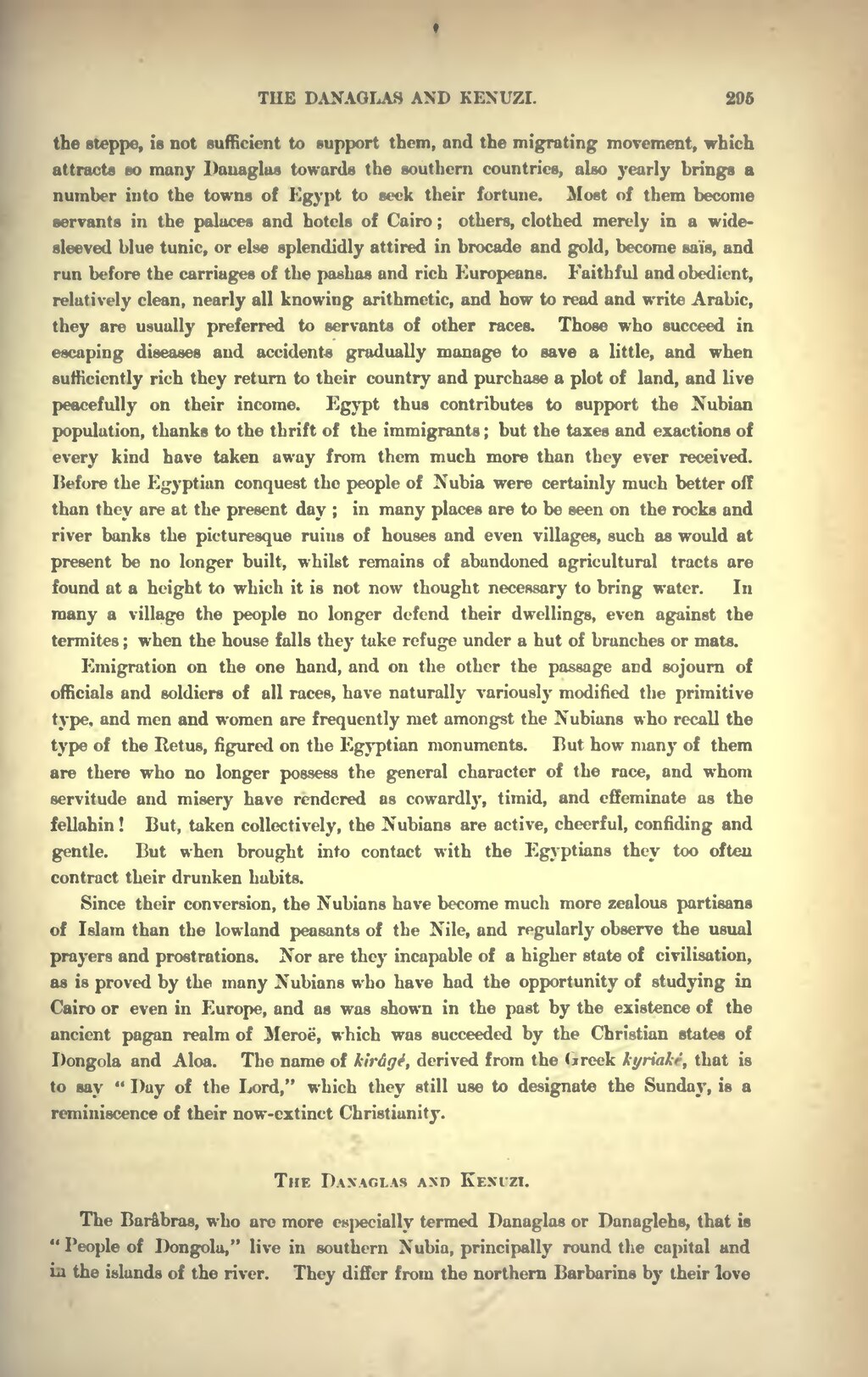THE DAXAOLAS AND KENUZI. 296 the steppe, is not sufficient to support them, and the migrating movement, which attracts so many Dauaglas towards the southern countries, also yearly brings a number into the towns of Egypt to seek their fortune. Most of them become servants in the palaces and hotels of Cairo ; others, clothed merely in a wide- sleeved blue tunic, or else splendidly attired in brocade and gold, become sais, and run before the carriages of the pashas and rich Europeans. Faithful and obedient, relatively clean, nearly all knowing arithmetic, and how to read and write Arabic, they are usually preferred to servants of other races. Those who succeed in escaping diseases and accidents gradually manage to save a little, and when sufficiently rich they return to their country and purchase a plot of land, and live peacefully on their income. Egypt thus contributes to support the Nubian population, thanks to the thrift of the immigrants ; but the taxes and exactions of every kind have taken away from them much more than they ever received. Before the Egyptian conquest the people of Nubia were certainly much better off than they are at the present day ; in many places are to be seen on the rocks and river banks the picturesque ruins of houses and even villages, such as would at present be no longer built, whilst remains of abandoned agricultural tracts are found at a height to which it is not now thought necessary to bring water. In many a village the people no longer defend their dwellings, even against the termites ; when the house falls they take refuge under a hut of branches or mats. Emigration on the one hand, and on the other the passage and sojourn of officials and soldiers of all races, have naturally variously modified the primitive type, and men and women are frequently met amongst the Nubians who recall the type of the Retus, figured on the Egyptian monuments. But how many of them are there who no longer possess the general character of the race, and whom servitude and misery have rendered as cowardly, timid, and effeminate as the fellahin ! But, taken collectively, the Nubians are active, cheerful, confiding and gentle. But when brought into contact with the Egyptians they too ofteu contract their drunken habits. Since their conversion, the Nubians have become much more zealous partisans of Islam than the lowland peasants of the Nile, ond regularly observe the usual prayers and prostrations. Nor are they incapable of a higher state of civilisation, as is proved by the many Nubians who have had the opportunity of studying in Cairo or even in Europe, and as was shown in the past by the existence of the ancient pagan realm of Meroe, which was succeeded by the Christian states of Dongola and Aloa. The name of kiHg^, derived from the Greek kyriake, that is to say " Day of the Lord," which they still use to designate the Sunday, is a reminiscence of their now-extinct Christianity. The Daxaglas and Kexlzi. The Bar^bras, who are more especially termed Danaglas or Danaglehs, that is " People of Dongola," live in southern Nubia, principally round the capital and in the islands of the river. They differ from the northern Barbarins by their love
